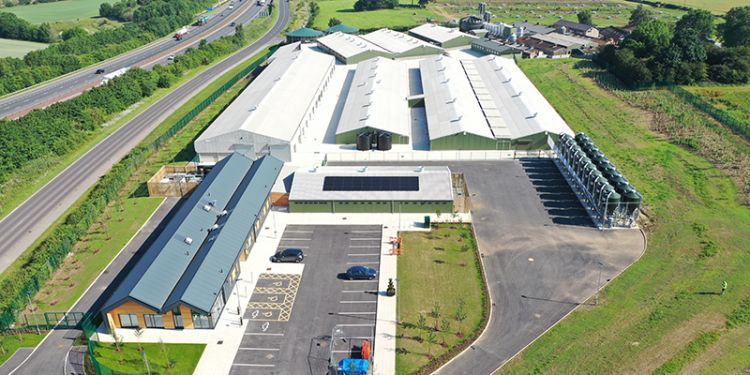New project launched to boost sustainable farming

Integrated on-farm renewable energy and waste management technologies will be investigated as part of a new £212,000 project.
The Decarbonising Emissions from Livestock: Innovative Valorisation of Waste for Energy Resilience (DELIVER) project, is led by BACB Renewables Ltd in collaboration with the University of Leeds.
It will explore how livestock waste and insect farming can generate clean energy, whilst providing commercial opportunities for farmers.
The findings of the study will help support farmers to raise animals and crops at reduced carbon and energy costs as well as boost economic sustainability, productivity and resilience.
The study is one of 50 projects which has secured funding from the Department for Environment Food and Rural Affairs (Defra) and UKRI as part of the Farming Innovation Programme.
The study
The first part of the study will involve baselining energy demands before looking at energy reduction, generation and storage opportunities.
Waste samples such as pig slurry, poultry manure and insect frass (larvae castings and excrement) will be analysed to identify the most viable waste feedstock for biogas and insect production using a newly installed 40ft walk-in insect bioreactor provided by insect technology company Entocycle.
Trials will take place at the National Pig Centre, the UK's largest and most advanced facility for research into pig nutrition, behaviour, welfare and health, and production systems and a testbed for the integration of technologies that support sustainable approaches to net zero.
Supporting net zero
Animal agriculture is known to have significant impacts on the environment. According to the Environment Agency, it’s the biggest cause of river pollution in the UK.
One reason it’s so damaging is the high levels of phosphate and nitrate found in animal waste which can end up in local waterways.
The study will not only explore how farm waste can be transformed into renewable energy but also how circular SMART systems may be used to diversify income streams and protect the local environment.
Dr Lloyd Glanville, Managing Director at BACB Renewables Ltd, said:
“In 2020, when compared to total emissions from all sectors, agriculture was the source of 11% of total greenhouse gas emissions in the UK. Integrated farming technology provides huge potential for farmers to tackle these climate challenges, as well as boosting economic productivity and resilience, particularly in the context of increasing inflation and rising energy costs.
We have high hopes that this study will bring us one step closer to meeting net zero in farming.
Dr Gesa Reiss, Smart Agri-Systems Senior Innovation Fellow at the University of Leeds, said: “To meet the challenges of sustainable food production and environmental sustainability, we must continue to work with partners to drive innovation and discovery in research. This is an excellent example of where academics, businesses and partners are coming together to tackle challenges in the UK farming industry.
We’re excited to see the outputs of this study and growing our collaborative partnerships in the future.
Katrina Hayter, Executive Director of the Healthy Living and Agriculture programme and Challenge Director of Transforming Food Production and Farming Innovation Programme at Innovate UK said:
“The competitions once again demonstrate the sheer breadth and quality of innovation within the UK agri-food space.
“We’re proud to be able to help deliver these funding and partnership opportunities to the sector, bringing together farmers, growers, technologists and researchers in a common aim of making the UK food system more sustainable and resilient.
“Whether improving existing production or introducing novel foods and techniques, the winners have all risen to the innovation challenge and we look forward to supporting their development further.”
Innovate UK, part of UK Research and Innovation, is creating a better future by inspiring, involving and investing in businesses developing life-changing innovations.
They provide targeted sectors with expertise, facilities and funding to test, demonstrate and evolve their ideas, driving UK productivity and economic growth.




